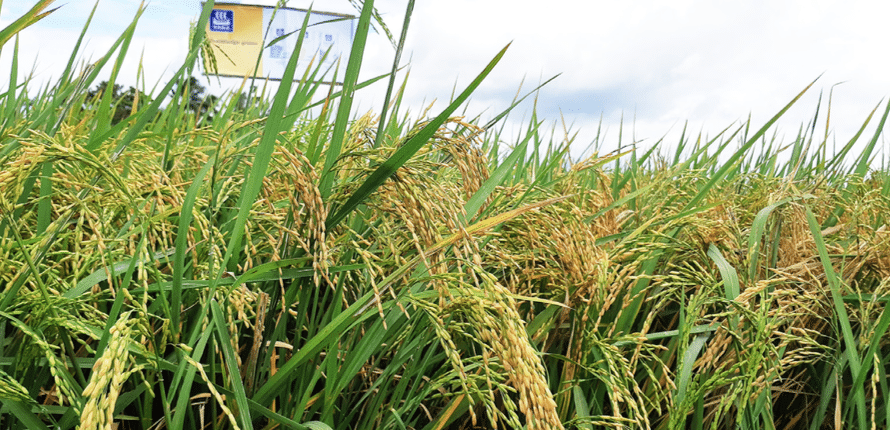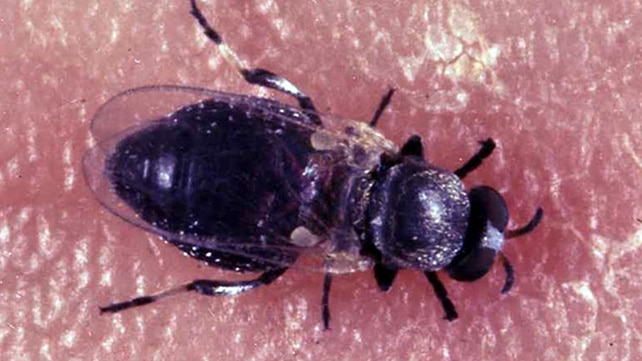About Direct Seeded Rice (DSR):
- It is a modern rice cultivation technique where rice seeds are directly sown into the field, replacing the traditional method of transplanting seedlings from a nursery.
- It is an efficient, and sustainable method of rice cultivation that offers significant benefits for farmers, the environment, and the economy.
- About Herbicide-Tolerant Basmati Rice: ICAR commercialised non-genetically modified (non-GM) Ht basmati rice. These varieties allow direct application of the herbicide Imazethapyr due to a mutated ALS gene.
- Scientific debate: Research indicates that hand weeding at specific intervals (20 and 40 days after sowing) in DSR is more effective and yield-enhancing than the use of Imazethapyr.
- ICAR’s research favours eco-friendly hand weeding over repeated herbicide applications for weed control and higher seed yield.
- Weed diversity and risks: Imazethapyr targets specific broadleaf weeds (BLW), not all weed types.
- Herbicide-resistant weeds may evolve, threatening rice production and food security.
- Similar challenges were seen with Bt-Cotton and pink bollworm resistance.
- Historical context: In the North Western Plains (e.g., Punjab, Haryana), DSR has been long used for growing Basmati rice.
- Green Revolution promoted water-intensive transplanted rice, causing ecological issues.
- Innovations in DSR: From 2014 to 2017, innovations in DSR at IARI Karnal led to the adoption of TAR-VATTAR technology, which uses climatic factors and effective herbicides like Pendimethalin to reduce costs and save water.
- Recent adoption and impact: During COVID-19, the labour shortage saw a spike in DSR adoption in Punjab, proving its viability.
- The Haryana government conserved water (e.g., 31,500 crore litres saved in 2022) by adopting DSR on a large scale.
Q1: What is Bt-Cotton?
Bt-Cotton is a genetically modified (GM) cotton crop that expresses an insecticidal protein derived from the soil bacterium Bacillus thuringiensis (Bt). This protein is toxic to certain insect pests, particularly bollworms and tobacco budworms, which are major cotton pests.
Source: ICAR’s herbicide-tolerant rice is not farmer-friendly and is a threat to national food security
Last updated on November, 2025
→ Check out the latest UPSC Syllabus 2026 here.
→ Join Vajiram & Ravi’s Interview Guidance Programme for expert help to crack your final UPSC stage.
→ UPSC Mains Result 2025 is now out.
→ UPSC Notification 2026 is scheduled to be released on January 14, 2026.
→ UPSC Calendar 2026 is released on 15th May, 2025.
→ The UPSC Vacancy 2025 were released 1129, out of which 979 were for UPSC CSE and remaining 150 are for UPSC IFoS.
→ UPSC Prelims 2026 will be conducted on 24th May, 2026 & UPSC Mains 2026 will be conducted on 21st August 2026.
→ The UPSC Selection Process is of 3 stages-Prelims, Mains and Interview.
→ UPSC Result 2024 is released with latest UPSC Marksheet 2024. Check Now!
→ UPSC Prelims Result 2025 is out now for the CSE held on 25 May 2025.
→ UPSC Toppers List 2024 is released now. Shakti Dubey is UPSC AIR 1 2024 Topper.
→ UPSC Prelims Question Paper 2025 and Unofficial Prelims Answer Key 2025 are available now.
→ UPSC Mains Question Paper 2025 is out for Essay, GS 1, 2, 3 & GS 4.
→ UPSC Mains Indian Language Question Paper 2025 is now out.
→ UPSC Mains Optional Question Paper 2025 is now out.
→ Also check Best IAS Coaching in Delhi

















